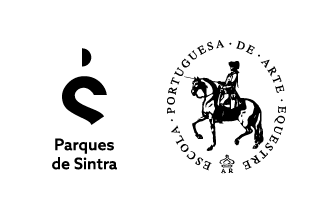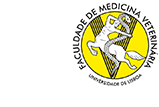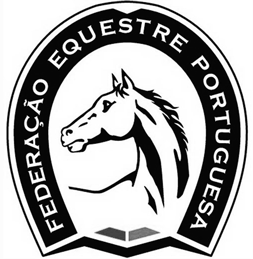
Master in Equine Sciences
1st Edition 2023/2025
+INFO - mce@fmv.ulisboa.pt
Edital
Objectives
The Master course in Equine Science (MCE) aims to:
- Provide high-level training in the area of horse production and use, based on updated technical and scientific knowledge, thus contributing to the training of professionals with a solid background in the basic and applied sciences of this area, through the strengthening of human and material resources of three Schools of ULisboa, with teaching and research in the fields of veterinary, agricultural and sport sciences.
- Contribute for the development and consolidation of scientific research in this field, promoting the application of specialized knowledge on innovative methodologies and techniques that allow the sector to develop, and to promote the integration of students into national and international research networks.
It is intended that MCE students acquire or consolidate skills that allow them to:
- Know and understand the complexity of equine anatomy and physiology.
- Integrate and relate the physiological processes associated with exercise, allowing the application of appropriate methodologies for different uses.
- Understand the biomechanics of equine locomotion and its practical application to equestrian sport.
- Understand the importance of genetics and animal breeding as an essential tool in programs for the conservation and improvement of equine breeds.
- Outline, manage and evaluate equine production systems, applying the most appropriate techniques and methodologies according to the productive objective in the areas of feeding, reproduction, management, health and well-being.
- Know the technical characteristics and particularities associated with sportive and non-sportive practices and activities that involve the use of horses.
Target audience
Who can apply for the Master in Equine Science:
- Holders of a bachelor's or master's degree, or legal equivalent, in the areas of Veterinary, Animal Science, Agricultural and Biological Sciences or similar;
- Holders of an academic, scientific or professional curriculum within the sector of horse production and use, that is recognized by the Scientific Committee as suitable for attending the cycle of studies.
Structure
The MCE is coordinated by FMV (Faculty of Veterinary Medicine) and has the formal involvement of two other Schools of the University of Lisbon, FMH (Faculty of Human Kinetics) and ISA (School of Agriculture).
Partner Institutions
 |
|
|
The Master in Equine Science also count with the collaboration of relevant entities in the organization and functioning of this sector, the Portuguese School of Equestrian Art (EPAE) and the Portuguese Equestrian Federation (FEP), whose contributions are valuable in terms of the use of the horse and the organization of equestrian sport. |
|
Application
Applications for the admission to the Master in Equine Science 2023/2025 (1st Edition) will take place in two periods:
1st Period | 15 JAN a 30 APR'23 - National, European Union and International Students
2nd Period | 15 MAI a 15 JUL'23 - National and European Union
Application to Attend Single Curricular Units
Attendance at the Equine Sciences Master's programme's Single Curricular Units is subject to a limited number of places.
For more information see the Notice and Regulations
Applications for the general course or just the UCI's must be made through the Applications Portal
Application Portal (new students)
Select according to your current situation:
- I already have a local FenixEdu account at FMV or EDU@ULisboa account
- Access recovery:
FenixEdu of FMV (candidates not admitted before with local accounts)
EDU@ULisboa (FMV student or alumni)
Operation & Schedule
The Master course takes place over 2 years (4 semesters), comprising a total of 120 ECTS (European Credit Transfer and Accumulation System). It consists of a curricular part, during the first year, and a second year where students will carry out a curricular traineeship with the aim of developing their practical skills and consolidating their knowledge through the preparation of a dissertation and its public defense.
The Master's degree will be awarded to students who obtain approval in all the curricular units of the study plan. Students who successfully attend and complete all 1st year curricular units, corresponding to 60 ECTS, will be issued a Postgraduate Certificate in Equine Science. The curricular units of the curricular component will also be offered as isolated units, in accordance with the Portuguese legislation and internal regulations, and may be credited by FEP (Federação Equestre Portuguesa) and IPDJ (Instituto Português do Desporto e Juventude) for coaches continuous training.
The curricular component (1st year) will be held on Thursdays between 4pm and 10pm, on Fridays between 9am and 6pm and on Saturdays between 9am and 1pm
Format
Classes will be held in a face-to-face format;
The classes will be held in Portuguese, although there may be occasional classes in English.
Calendar
1st Semester
Classes Begin – 07 SEP'23
Christmas Holidays – 17 DEC to 03 JAN'24
Semester Fall – 10 FEB
Exam appeal period – 12 to 17 FEB
2nd Semester
Classes Begin – 22 FEB'24
Easter Holidays – 24 MAR to 03 APR
Semester Fall – 20 JUL
Exam appeal period – 22 to 27 JUL
Tuition fee
National or equivalent student:
2.000 € - 1st year, and 1.500€ - 2nd year. In each year the payment of the annual attendance fee (tuition fee) can be made in 10 instalments.
International student:
3000 € - 1st year, and 2.500€ - 2nd year. In each year the payment of the annual attendance fee (tuition fee) can be made in 10 instalments.
Study Plan
|
Curricular Units |
ECTS |
CU’s Start |
|
1st YEAR - 1st Semester |
||
|
Pasture and forage production |
3 |
07 set'23 |
|
Horse use I |
6 |
07 set'23 |
|
Anatomy and Physiology I |
3 |
08 set'23 |
|
Hygiene and Health I |
2 |
09 set'23 |
|
Genetics and animal breeding I |
2 |
14 set'23 |
|
Behaviour and Welfare I |
1 |
13 out'23 |
|
Equestrian pedagogy |
2 |
10 nov'23 |
|
Equine podology |
2 |
10 nov'23 |
|
Nutrition and Feeding I |
3 |
23 nov'23 |
|
Horse production |
3 |
23 nov'23 |
|
Equine reproduction |
1 |
04 jan'24 |
|
Biomechanics of exercise |
2 |
06 jan'24 |
|
1st YEAR - 2nd Semester |
||
|
Economics and Management in equine production |
2 |
22 fev'24 |
|
Hygiene and Health II |
3 |
22 fev'24 |
|
Equine Reproduction II |
2 |
23 fev'24 |
|
Horse use II |
7 |
24 fev'24 |
|
Anatomy and Physiology II |
2 |
01 mar'24 |
|
Nutrition and Feeding II |
3 |
21 mar'24 |
|
Genetics and animal breeding II |
2 |
05 abr'24 |
|
Exercise and Sport Physiology |
3 |
12 abr'24 |
|
Biomechanics of movement and tissues |
2 |
03 mai'24 |
|
Experimental design |
2 |
23 mai'24 |
|
Behaviour and Welfare II |
2 |
07 jun'24 |
|
2nd YEAR - 3rd & 4th Semesters |
||
|
Communication in Science |
2 |
|
|
Internship |
58 |
|
Vacancies
The number of vacancies assigned for the 2023/2025 Edition ranges between 15 (minimum) and 25 (maximum).
Coordination
Coordinator
Professor Manuel Vasconcelos Horta Rui Caldeira
Scientific Committee
Professor Rui Manuel Vasconcelos Horta Caldeira - FMV Coordinator;
Professor Ana Isabel A. Nascimento Rodrigues de Melo – FMH Coordinator;
Professor Teresa de Jesus da Silva Matos - ISA Coordinator;
Professor Doutor Luís Ressano Garcia Pardon Lamas
Professora Doutora Maria João de Sousa Ferreira Martelo Fradinho

